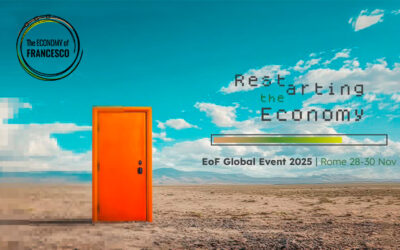
The Focolare Movement in Peru is widespread in Peru’s three geographical regions: the coastal strip, the Andes mountainous chain, and the pluvial Amazonia forest.
There are 3 centres of the Movement: 2 in Lima, 1 at Arequipa and many communities spread all over the country: at Talara, Trujillo, Chiclayo, Lima, Ica, Arequipa, and at Tacna with around 2000 members in all.
Peru is a country very rich in natural resources. It was the cradle of the Inca and pre-Inca civilisation that left great cultural and archaeological richness like the ruins of Machu Picchu, considered to be one of the New Seven Wonders of the World.
Initially the arrival of the Spanish, and later the immigration of Africans and Asians have made Peru a multicultural country, a sum of traditions, ancient religions and culture. As said by the Mario Vargas Llosa, the Peruvian Nobel laureate in literature: “If we delve a little we will discover that Peru is the whole world in miniature.”

The Cordillera of the Andes, with its high mountains that cross through the whole country, and reach to a height of 6800 metres, is the natural cornice and symbol of the values of the Peruvian people: strong, hardworking, hospitable, with a strong solidarity and a very rich inwardness.
The family remains a constant value and life is considered and welcomed as a gift of God, especially in the love and sacrifice of the women.
In this context, the Movement for New Families of the Focolari sustains and accompanies the life of families in their joys and sorrows. The programme Support from a Distance reaches around 300 children, spread in the poorest places of the Andes.
The children are very numerous, and youths and children account for 59% of the population of the country. Many of them have been attracted by the ideal of a united world, and are protagonists of the most varied initiatives towards this reality.
A little history- Three youths from Arequipa, in 1972, participated at a meeting of the Movement in Argentina. They returned very happy with the way of evangelical life that they had experienced, and within a few months they had transmitted the ideal of unity to other persons. In 1981, a family from Lima, after coming into contact with the Movement in Bogota’-Colombia-communicated the spirituality of the Focolari to many other families. In 1982 the first Peruvian Mariapolis were held in the city of Arequipa, and subsequently, in Lima and Trujillo.
To the great joy of all, in 1989 the first female focolare was inaugurated in Lima, and in 1995, the male one was also inaugurated. In 2001 a new residence was opened at Arequipa, in the south of the country.

“The Peruvian people have an ancestral dignity” commented Bruna Tomasi, one of the first companions of Chiara Lubich-during her visit in May of 2011. “It seems that even in the religious tradition of the Inca, there are traces of the Golden Rule”, she affirmed.
In order to acknowledge the contribution offered by the spirituality of the Focolari in Peru, in 2009 the Pontifical Catholic University of Lima conferred on Chiara Lubich the posthumous title of Honorary Professor. And on 31 March 2011, she was remembered through a conference on the Economy of Communion.




0 Comments